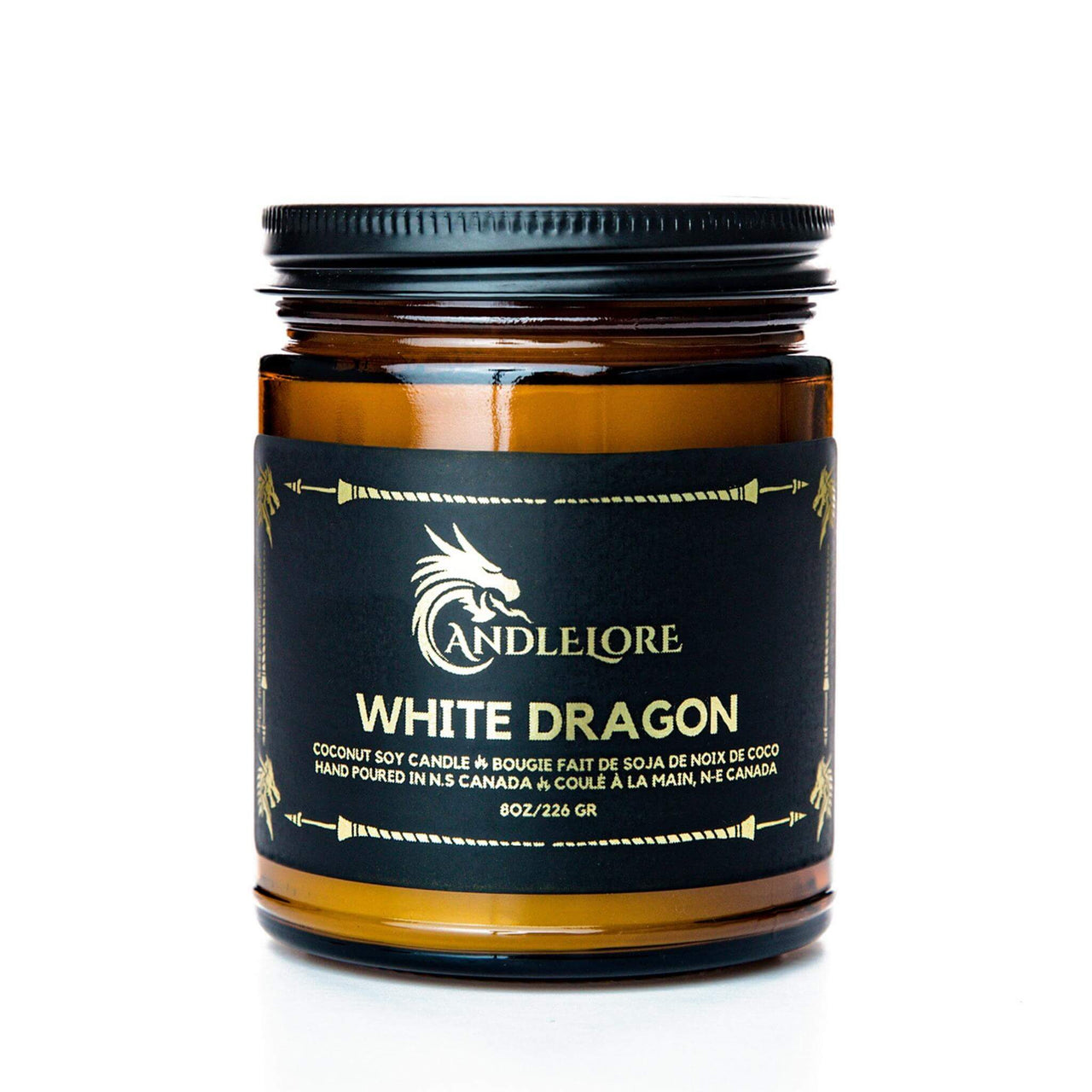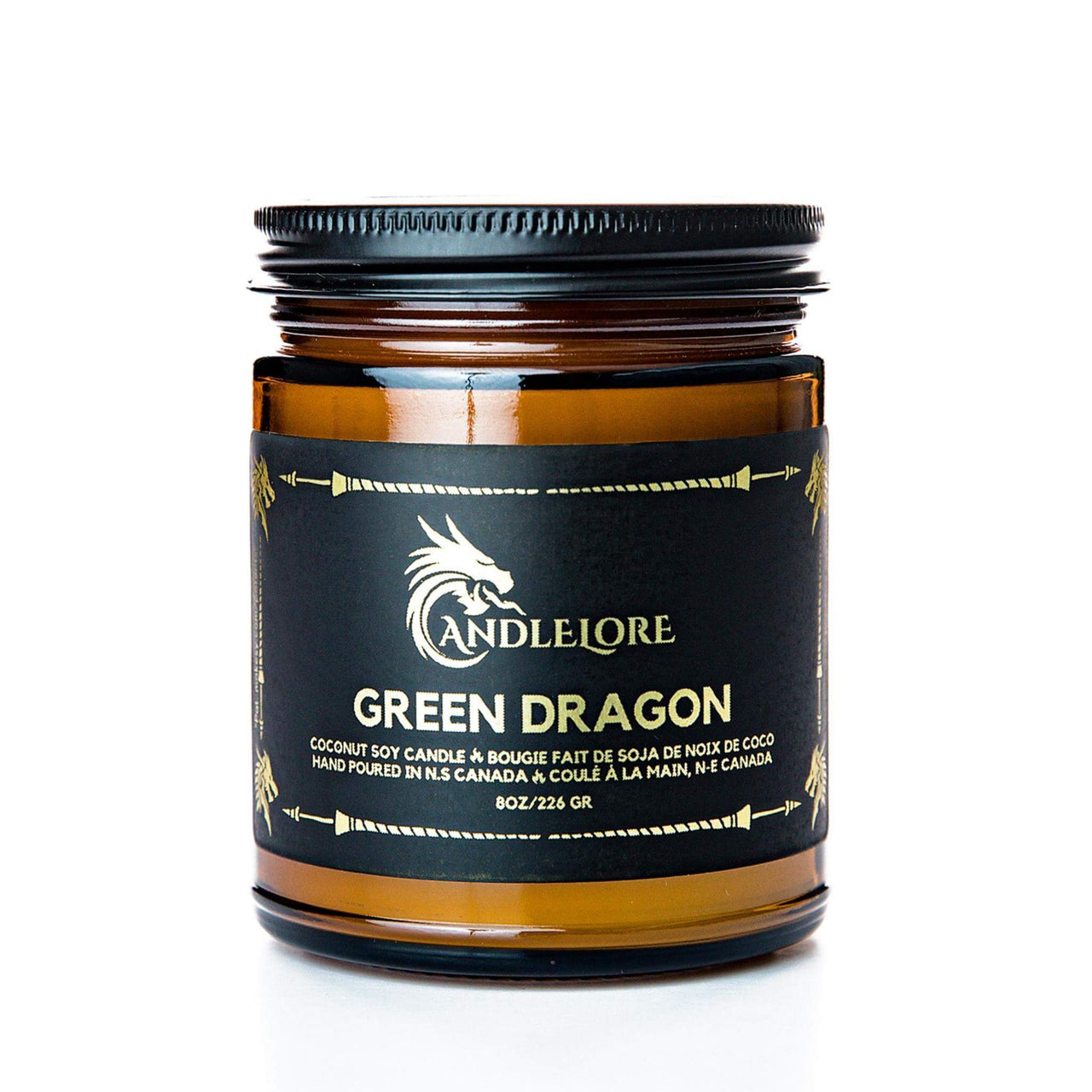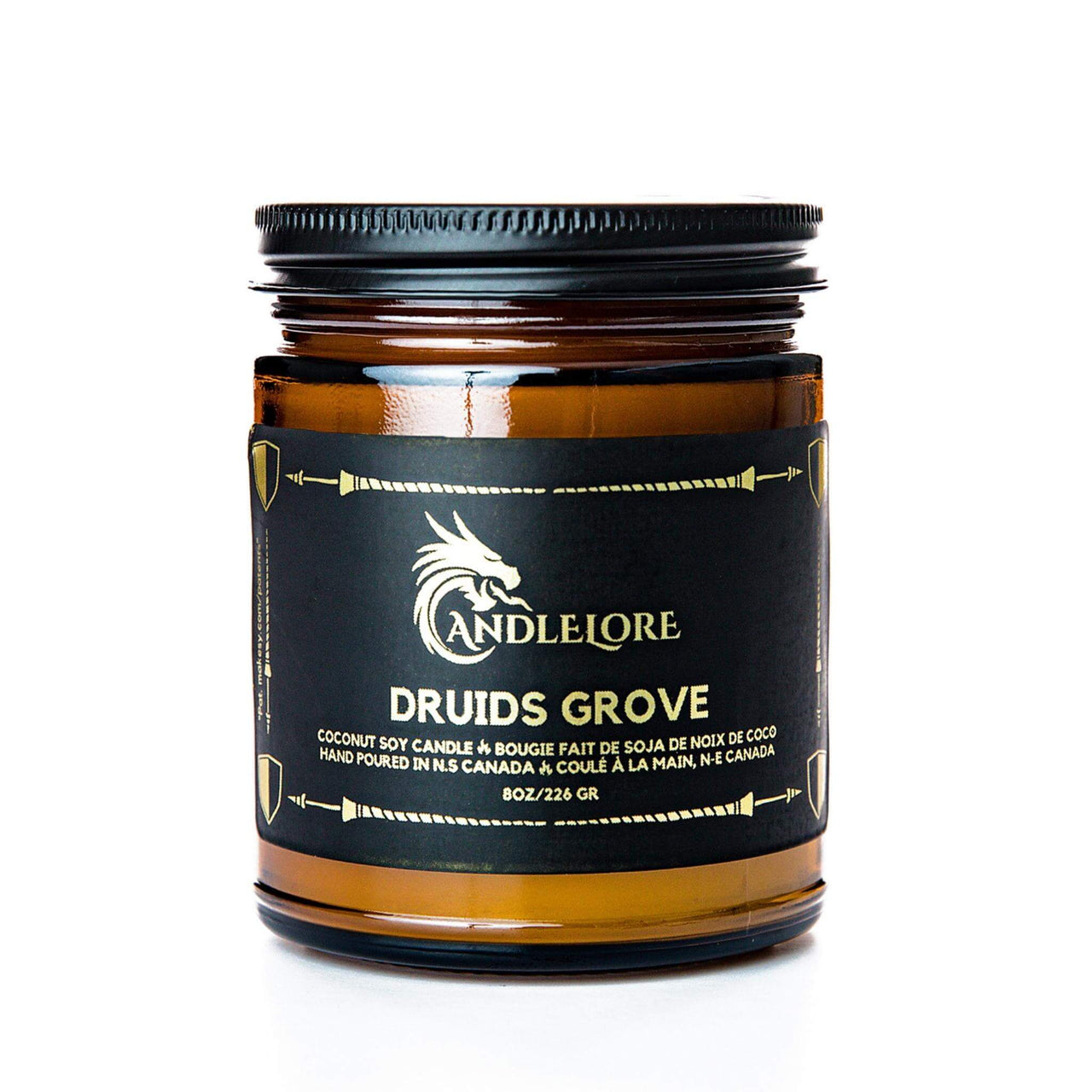Have you ever been curious about the different aromas and scents of various products? If so, then this post is for you! Previously, we covered the scent of Bergamot, but today, we’re covering the scent of eucalyptus, and why it's such a popular scent in candles.
This delightful aroma is becoming more popular in candles, air fresheners, and even some cleaning products. You may have noticed its distinct smell in certain rooms or buildings but had no idea what it was called.
There's something magical about the smell of eucalyptus. The scent is unmistakable but hard to describe. You might say it's fresh, invigorating, or even slightly sweet, but none of those words completely capture the enchanting fragrance of this amazing plant. No matter how you describe it, one thing is for sure: eucalyptus has a captivating aroma that can instantly transport you to a peaceful, serene place. Whether you're using it in aromatherapy or simply enjoying its scent throughout your home, the eucalyptus aroma is sure to delight your senses and soothe your soul.
Read on to find out all the details about eucalyptus scent—from its origins to how it smells—so you can better understand why it's gaining popularity amongst fragrance lovers!
Defining the Scent: What Does Eucalyptus Smell Like?
The eucalyptus scent is a unique and familiar aroma to many. This essential oil is derived from the leaves of the eucalyptus tree, which is native to Australia but can now be found all over the world. The smell of eucalyptus is known for its cool, fresh, clean, and invigorating scent that many people find calming and refreshing. Some describe it as minty, with a hint of a woody undertone, while others liken it to a breezy, forest-like aroma.
This scent can be used in a variety of ways, from aromatherapy to cleaning products, due to its natural anti-inflammatory and antimicrobial properties. Overall, the scent of eucalyptus is a powerful and recognizable scent that is sure to invigorate the senses.
What Is Eucalyptus?
Eucalyptus is a genus of flowering trees and shrubs that are native to Australia and the surrounding islands. There are over 700 different species of eucalyptus, ranging from towering trees to small shrubs. The leaves of the eucalyptus tree are known for their distinct aroma, which is due to the high concentration of essential oils they contain. The oil is extracted by steam distillation and is used in a variety of products, including soaps, perfumes, and pain relief treatments.
One of the most remarkable things about eucalyptus trees is their ability to adapt to their environment. Eucalyptus trees are known for their rapid growth and their ability to thrive in a variety of soil types. They are also drought-tolerant and can survive in areas with low rainfall. This adaptability has made eucalyptus trees a popular choice for reforestation projects around the world.
In addition to their practical uses, eucalyptus trees also have a cultural significance in Australia. The tree is a symbol of the Australian landscape and has been used in Indigenous Australian culture for thousands of years. The leaves were used for medicinal purposes, and the sap was used to make a glue-like substance for weapons and tools.
While eucalyptus trees are native to Australia, they have been introduced to other parts of the world, such as South Africa and California.
The Different Species Of Eucalyptus
Eucalyptus, also known as the gum tree has a wide range of species that can be found throughout the world. There are over 700 species of eucalyptus trees, making it one of the most diverse groups of trees on the planet. These species have varying heights, colors, and leaf shapes, making each one truly unique.
One of the most prominent species of eucalyptus is the Blue Gum, which is named for the blue-gray hue of its bark. This tree can grow up to 200 feet tall and has been introduced to many places around the world, including California and Spain. It is often used for timber or as a source of pulp for paper products.
The Tasmanian Snow Gum is another species that is gaining popularity. This tree is native to the mountainous areas of Tasmania and is known for its beautiful, white bark. It is also valued for its resistance to extreme weather conditions, making it a popular choice for landscaping in cold climates.
Another widely grown species is the Rainbow Eucalyptus, which is native to the Philippines, Indonesia, and Papua New Guinea. This tree is known for its stunning colorful bark that changes over time. As the bark peels away, it reveals colors ranging from green to blue to orange. It is often used for decorative purposes but is also valued for its wood, which is used to make paper.
Eucalyptus also has many medicinal qualities. The oil extracted from the leaves can be used as a natural decongestant and is often used in cold medications. It is also known for its anti-inflammatory and anti-bacterial properties and is used in many natural health remedies.
In addition to its various uses and unique characteristics, eucalyptus also plays an important role in the environment. It is known for its ability to absorb large amounts of carbon dioxide, making it a valuable tool in the fight against climate change. Its leaves are also a valuable food source for many species of koalas and other animals.
The History Of Eucalyptus
Eucalyptus is a genus of trees and shrubs that is native to Australia and surrounding areas. It is known for its distinct aroma, and has become a popular ornamental plant around the world. However, eucalyptus also has a rich history that spans back centuries.
Indigenous Australians were the first people to discover the benefits of eucalyptus. They used the leaves to create remedies for a variety of ailments, such as coughs and colds. They also used the leaves to create a tonic that was said to boost the immune system. It wasn't until the arrival of European settlers that eucalyptus was given its official name.
In 1777, botanist David Nelson discovered eucalyptus during an expedition with Captain Cook. He named it after the Greek words eu, meaning “well,” and kalyptos, meaning “covered,” due to the way the new growth is covered by a cap. Shortly after its discovery, eucalyptus started to gain popularity as a timber source. The straight trunk and branching system made it a desirable wood for building homes, as well as for railway ties and piles.
The use of eucalyptus continued to expand as its oil was discovered. In the mid-1800s, Joseph Bosisto distilled eucalyptus oil and became the first person to market it for medicinal use. Eucalyptus oil contains eucalyptol, a natural aroma compound that is used in a variety of products, including cough drops, mouthwash, and even perfumes. The oil’s medicinal properties have made it a popular ingredient in aromatherapy, and its use has spread across the world.
Beyond its medicinal qualities, eucalyptus has also been used for agricultural purposes. The tree is known for its ability to absorb large amounts of water, and for its fast growth. In many regions, eucalyptus is planted to prevent soil erosion, to provide shade for crops, and to improve soil quality.
Today, eucalyptus continues to be a vital part of many industries. It is still used as a source of timber, as well as for its medicinal and aromatherapy properties. With its fascinating history and numerous uses, it is clear that eucalyptus will continue to be an important plant for many years to come.
Eucalyptus in Aromatherapy: A Fresh and Invigorating Experience
Eucalyptus has long been known for its refreshing and invigorating scent, making it a popular choice in aromatherapy. With its minty and slightly woody aroma, eucalyptus essential oil is said to help soothe respiratory issues and promote mental clarity.
In addition to its healing properties, the scent of eucalyptus can also create a fresh and revitalizing atmosphere in any room. Whether you're diffusing eucalyptus oil, burning a jar candle, or using it topically, incorporating this natural remedy into your daily routine can provide a rejuvenating experience for both your mind and body.

The Health Benefits of Eucalyptus Oil: More Than Just a Pleasant Scent
The eucalyptus smell is not just pleasant, it also has a multitude of health benefits. The oil is extracted from the leaves of the eucalyptus tree, and has been used medicinally for centuries. It has anti-inflammatory properties, which can help reduce pain and swelling.
Additionally, it can help to clear your sinuses and improve respiratory function. Eucalyptus oil also has antimicrobial properties, which means that it can help fight off bacteria and viruses. This makes it a great addition to your medicine cabinet during cold and flu season. Overall, eucalyptus oil is a natural way to improve your health and well-being.
Eucalyptus in Everyday Products: Where Can You Find It?
Eucalyptus has been used in various everyday products for years, due to its unique properties and scent. From cleaning products, such as disinfectants and air fresheners, to personal care items like shampoos and lotions, eucalyptus can be found in many household goods. It is also commonly used in aromatherapy and spa treatments for its calming and soothing effects.
In addition, eucalyptus oil is often used in insect repellents due to its natural ability to deter bugs. So next time you're cleaning your home or stocking up on personal care items, keep an eye out for eucalyptus-infused products and enjoy the many benefits this versatile plant has to offer.
Safety and Sustainability: What to Consider When Using Eucalyptus
Eucalyptus trees have long been admired for their aromatic leaves and sturdy construction material. However, when using eucalyptus, safety and sustainability should always be taken into consideration.
While the oils found in eucalyptus have medicinal benefits, they can also be toxic if ingested or applied directly to the skin. In terms of sustainability, eucalyptus plantations can have harmful effects on the surrounding environment and wildlife ecosystems. It is important to carefully source eucalyptus from responsible growers who practice sustainable forestry methods.
By being mindful of both safety and sustainability factors, we can continue to appreciate the beauty of eucalyptus while protecting our health and the planet.
Unlocking the Moods: How Does Eucalyptus Scent Affect Us?
The smell of eucalyptus is incredibly unique and has been used for centuries to promote relaxation and relieve stress. But have you ever wondered how it affects us on a deeper level? Studies have shown that the scent of eucalyptus can activate certain receptors in our brains that are linked with the regulation of mood. It's no wonder why eucalyptus is often used in aromatherapy treatments and spa settings to help ease tension and create a sense of calm.
So next time you're feeling stressed or overwhelmed, consider incorporating the soothing scent of eucalyptus into your daily routine.
Culinary Uses: The Unexpected Role of Eucalyptus
Eucalyptus trees are typically known for their aromatic leaves and ability to ward off pesky insects. However, did you know that these trees also have culinary uses? Its leaves, oil, and extracts have been used for many years in cooking as spices and flavoring agents.
The unexpected role of eucalyptus in the kitchen might come as a surprise, but it's gaining popularity among chefs.
The first thing to know about eucalyptus is that it has a distinct, minty flavor that can add a refreshing zing to many dishes. Its aroma can also be described as woody and earthy, making it a perfect ingredient for savory dishes.
One of the most common culinary uses of eucalyptus is in tea. Eucalyptus tea is made by steeping fresh or dried eucalyptus leaves in hot water. It is believed to have many health benefits, including soothing coughs and reducing inflammation.
Eucalyptus leaves can also be used as a natural food preservative. Because of their antimicrobial properties, they are often added to meats, cheeses, and even bread to prevent the growth of bacteria.
Another way to use eucalyptus in cooking is by using the leaves as a seasoning. In Mediterranean and Australian cuisine, eucalyptus leaves are often used to flavor roasted meats such as lamb or pork. The leaves can also be used to add a unique flavor to salads, soups, and stews.
In South America, eucalyptus leaves are often used to make a popular tea called mate. Mate is a traditional drink made by steeping dried leaves in hot water and is often shared among friends and family. The tea is said to have a calming effect and is a popular alternative to coffee.
In baking, eucalyptus adds an interesting twist to classic desserts like brownies, cakes, and cookies.
Whether you're an adventurous home cook or an experienced chef, experimenting with eucalyptus leaves in the kitchen might just lead to some tasty and unexpected culinary creations.
Pairing Eucalyptus: Complementing Scents and Flavors
When it comes to pairing scents with the eucalyptus aroma, there is a wide range of options. One popular combination is eucalyptus and lavender. Lavender is a relaxing scent that pairs well with the refreshing aroma of eucalyptus. This combination is perfect for those looking to unwind after a long day.
Another great pairing for eucalyptus is peppermint. Peppermint has a similar aroma to eucalyptus, with its minty-fresh scent. This pairing is invigorating and energizing, making it a great combination for those early morning workouts or days where you need an extra boost of energy.
If you are looking for a more complex scent combination, consider combining eucalyptus with lemon or grapefruit. The citrusy scents of lemon and grapefruit complement the refreshing aroma of eucalyptus, creating a mix that is both fresh and uplifting.
For those who prefer more floral scents, try pairing eucalyptus with rose or jasmine. The delicate floral aromas of rose and jasmine complement the fresh, minty scent of eucalyptus, creating a balanced and harmonious blend.
In addition to the pairings listed above, there are many other scents that can be combined with eucalyptus. Other popular pairings include bergamot, cedarwood, and frankincense. These scents all have unique properties that complement the refreshing aroma of eucalyptus, creating a personalized blend that is perfect for your individual needs.
The Enduring Appeal of Eucalyptus' Fragrance
The sweet and refreshing scent of eucalyptus has been a favorite of many, from ancient civilizations to modern times. Its unique aroma, reminiscent of fresh mint and pine, has found its way into fragrances, candles, wax melts, and household cleaning products.
Audaciously blend it with unexpected scents and flavors—you will be pleasantly surprised at the outcome! The enduring appeal of eucalyptus' fragrance can be attributed to its calming and invigorating properties. Research shows that inhaling the scent of eucalyptus oil can reduce stress, improve breathing, and even lower blood pressure.
It's no wonder why eucalyptus remains a popular choice among aromatherapy enthusiasts and nature lovers alike. Its distinct aroma is not only therapeutic but also a beautiful reminder of the lush green forests where this majestic plant calls home.
If you're looking for new and exciting ways to bring the exhilarating smell of eucalyptus into your home, see it in action these candles below.





